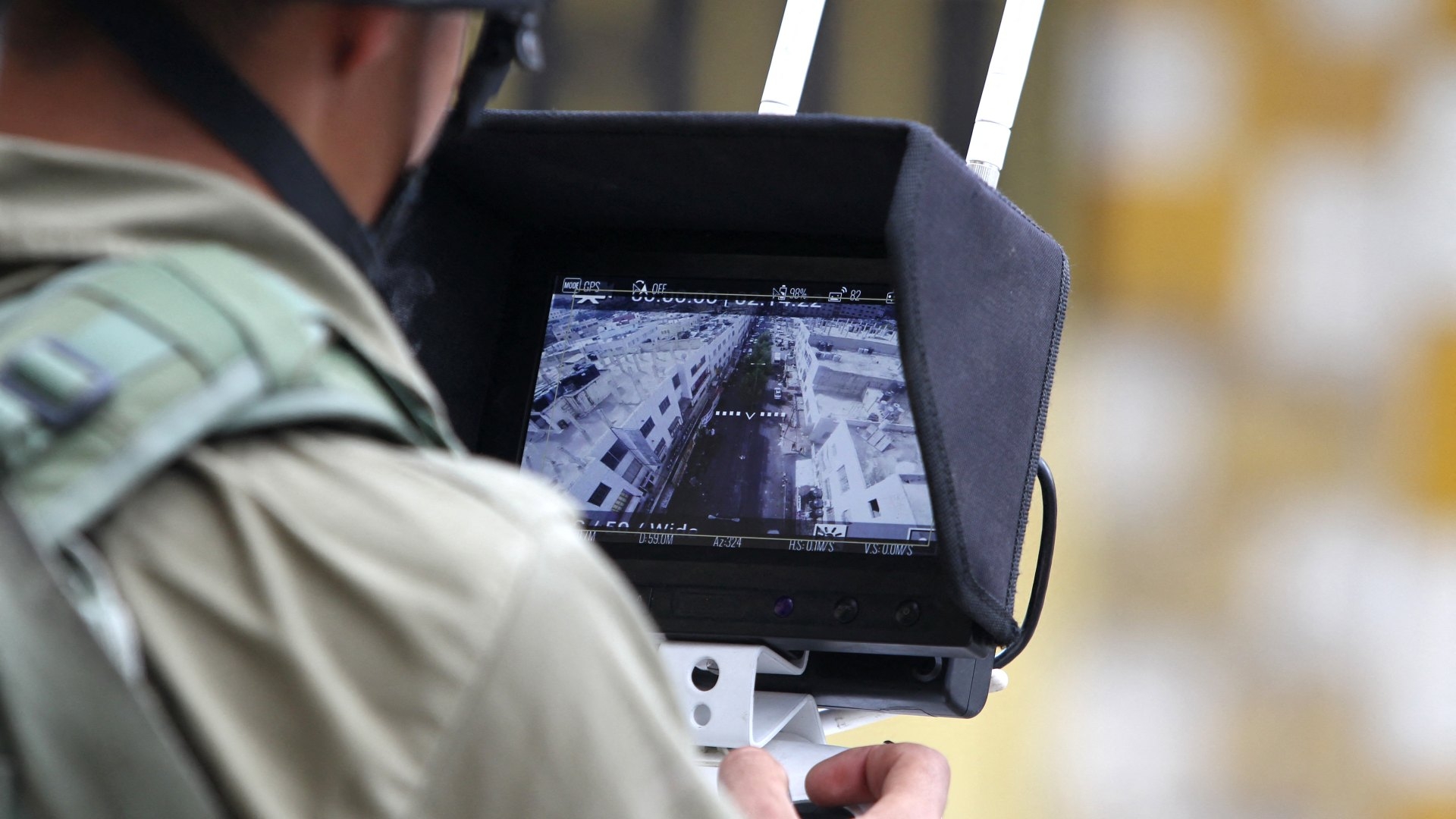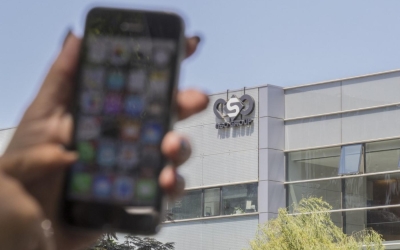Invasive surveillance tech violates migrants' rights in Mena region, report finds

The spread of surveillance technology across the Middle East and North Africa often lacks regulation and transparency, leading to human rights abuses against refugees and asylum seekers, according to a new report released on Wednesday.
The Business and Human Rights Resource Centre, an international NGO that tracks over 10,000 companies around the world for rights abuses, called on governments in the Middle East to end the use of these surveillance tools on migrating peoples.
It also called on the states to issue a moratorium on the trade of these technologies until there are proper regulations in place that ensure transparency and accountability over the use of such tools.
Wednesday's report found that out of the 24 companies that they had reached out to regarding which countries in the region they sold to, none of them provided clear answers.
Only five companies - Airbus, G4S, Cellebrite, IrisGuard, and Thales - responded to their inquiries.
Dima Samaro, the author of the report, said the lack of transparency and reporting by the companies made it difficult to know what technologies are being used in which countries, and ultimately help contribute to a lack of accountability when people's rights are abused.
The report highlighted how surveillance tools, like facial recognition software, unmanned drones, and biometric systems, have been used in the occupied West Bank to racially profile Palestinians.
It also tracked how such technology was used in Libya against people using the Mediterranean Sea to cross into Europe. Human Rights Watch reported in August that an EU drone was being used to help Libya track individuals crossing the Mediterranean and forcibly returning them.
"There have been also some other cases like in Libya when migrants and refugees were crossing the Mediterranean, some companies deployed drones to watch these people where they were drowning in the sea, without helping them," Samaro said.
"When it comes to the Middle East and North Africa, there is a lack of regulation on the use of these technologies."
Spread of AI technology
Artificial intelligence (AI) surveillance technology has spread rapidly across the world in recent years.
At least 75 countries globally are actively using AI technologies for surveillance purposes, including smart city platforms, facial recognition systems, and smart policing, according to the Carnegie Foundation for International Peace.
In the Middle East, reports of governments using surveillance tools to spy on dissidents, journalists and human rights activists have been well documented by news outlets and rights groups.
However, the issue of these tools used by governments for border surveillance has been less documented, according to the report, and allows greater room for abuses against refugees, asylum seekers and others trying to cross into a country.
"We have seen how Mena governments have been increasingly using surveillance tech exported from the EU or Israel and how these technologies basically have been used to target human rights activists, journalists from the region," Samaro told Middle East Eye in an interview.
"But also when it comes to this trend, it hasn't been limited to targeting activists. It has been used in the context of border control and immigration."
Samaro said that moving forward, a recent directive by the EU that demands companies abide by mandatory human rights guidelines could help pave the way for greater regulation of these technologies.
Most of the surveillance tools tracked by the report are either from the EU or Israel, according to Samaro.
"This represents an opportunity for us in the region to continue pushing for regulation and even for this new directive to take into consideration."
Middle East Eye delivers independent and unrivalled coverage and analysis of the Middle East, North Africa and beyond. To learn more about republishing this content and the associated fees, please fill out this form. More about MEE can be found here.





